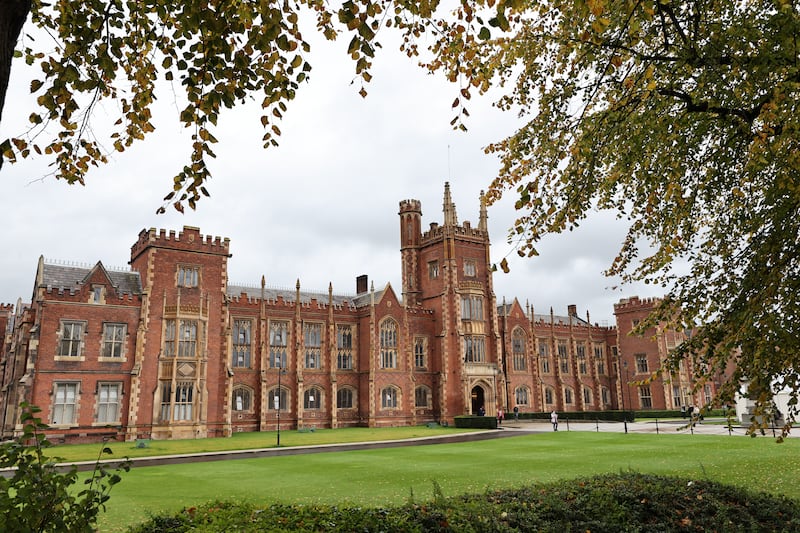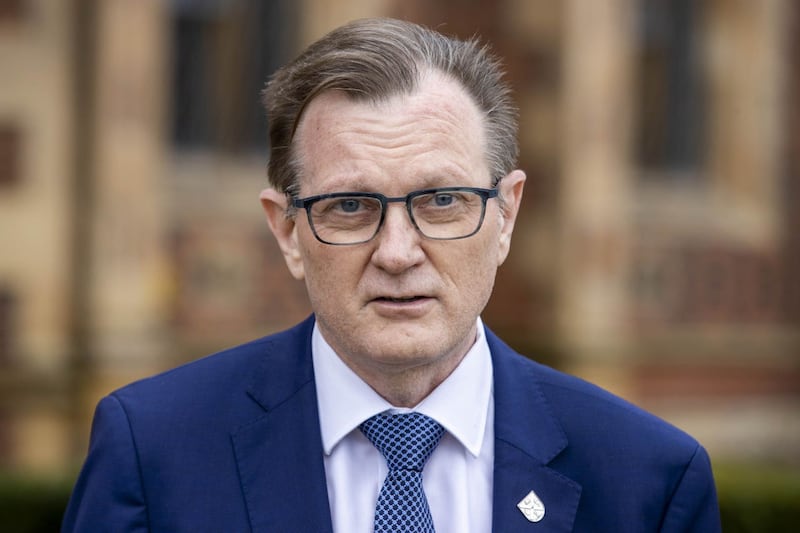Queen’s University Belfast has announced a number of measures to support academics and students at risk across the world.
The university cover the cost of extending a scholarship for Palestinians from one to four students.
The fully paid, one-year Copty postgraduate programme is open to applicants with Palestinian nationality who live in Gaza or the West Bank, including East Jerusalem, and belong to a family normally resident there.
Bilal Zedan, this year’s Copty scholarship recipient, is studying towards a master’s degree in construction and project management.

He said: “The Copty scholarship is the cornerstone of my career journey. It has enabled me to fulfil my potential and achieve my career plans.
“It really has been a life-changing experience. I dreamed for this all of my life – to come to the UK and complete a master’s degree.”
The scholarship was set up by Georgina Copty, who grew up in Jerusalem, and her husband Chris McDowell, both former students of Queen’s
To support academics from conflict-affected regions, the university has also partnered with the Council for At Risk Academics (Cara) to create and fund three fellowships per year.
These fellowships will run for two years and offer academics at risk around the world an opportunity to come to the university to continue their studies safely.
Stephen Wordsworth, executive director at Cara, said: “Over the past few years we have seen a very significant rise in the number of academics seeking our support to escape from immediate danger in Afghanistan, Ukraine, Sudan and elsewhere, including of course the Middle East and most recently Gaza.
“They all need help to get away, with their families, to a safe place where they can continue their work until they can one day go back home to help rebuild.
“Generous awards like these change lives – in some cases, very probably even save lives. We very much look forward to working with Queen’s to follow up as quickly as possible.”
Queen’s University has also announced plans to officially seek University of Sanctuary recognition. Through this process, the university will welcome people seeking sanctuary through facilitated access to higher education and support to local refugee communities.

Queen’s vice-chancellor Professor Sir Ian Greer said: “Queen’s University has a long history of promoting global peace, conflict transformation and reconciliation and that is why, as an academic institution, we are redoubling our efforts through our research and teaching, and through our public and private spaces to promote routes to peace, reconciliation and justice.
“These are important initiatives but we recognise they address symptoms, not causes.
“Like millions of people around the world, our university is deeply saddened by the events that have led to the harrowing loss of life in the Middle East, Ukraine and may other war zones, and the distressing and complex nature of such conflicts.”
Queen’s Students’ Union president Beth Elder added: “I welcome the university’s commitment to providing safety and showing solidarity to those who are experiencing conflict across the world.
“It reflects our determination to empower people who live in disadvantaged areas or in conflict zones to secure better lives for themselves, their families and communities.”



